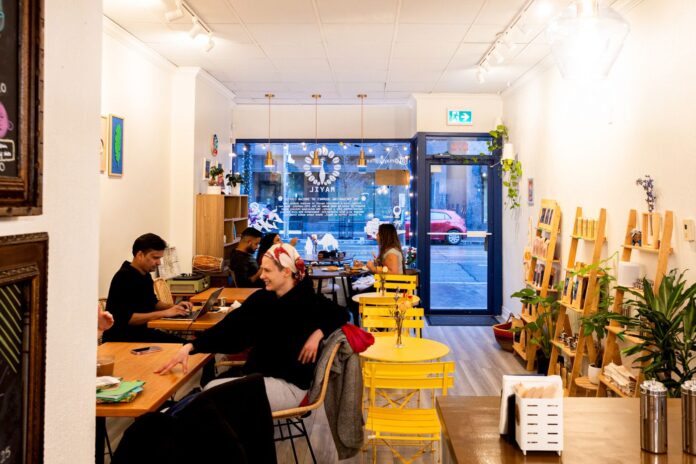In a city like Toronto, where chai lattes reign supreme and double-doubles dominate the caffeinated scene, a new South Indian cafe is brewing more than just coffee, it's telling a storied story.
This story begins in the 16th century when Baba Budan, an Indian Sufi saint, is said to have smuggled seven coffee beans from Mocha in Yemen, hidden in his beard. That's when India's love for coffee began.
This is a story I learned from Neha Rohatgi, who along with her husband Amal Kashyap are bringing the rich traditions of South Indian filter coffee to Toronto.
Although its origin is unclear, it is believed to have become popular centuries ago in colonial times in Karnataka, India.
The childhood friend husband and wife team are behind Mayil Coffee House at 870 College St, which recently had its grand opening on December 13, 2024.
But this place represents more than just a store. It's a hub where their passion for creating connections fosters a sense of belonging – a home away from home created by two people who know the beauty of bringing others together.
From technology and science to filter coffee
And Mayil is actually a passion project for the couple. Kashyap is a technology executive who navigates the corporate world by day, while Rohatgi is a scientist focused on cancer research.
Their passion is so great that they juggle their careers and run a company in their free time. Still, they say they have no desire to quit their full-time jobs.
But that doesn't mean they aren't committed to this new venture. The two combine different but harmonious strengths that fuel their passion – filter coffee, traditionally known as filter kaapi.
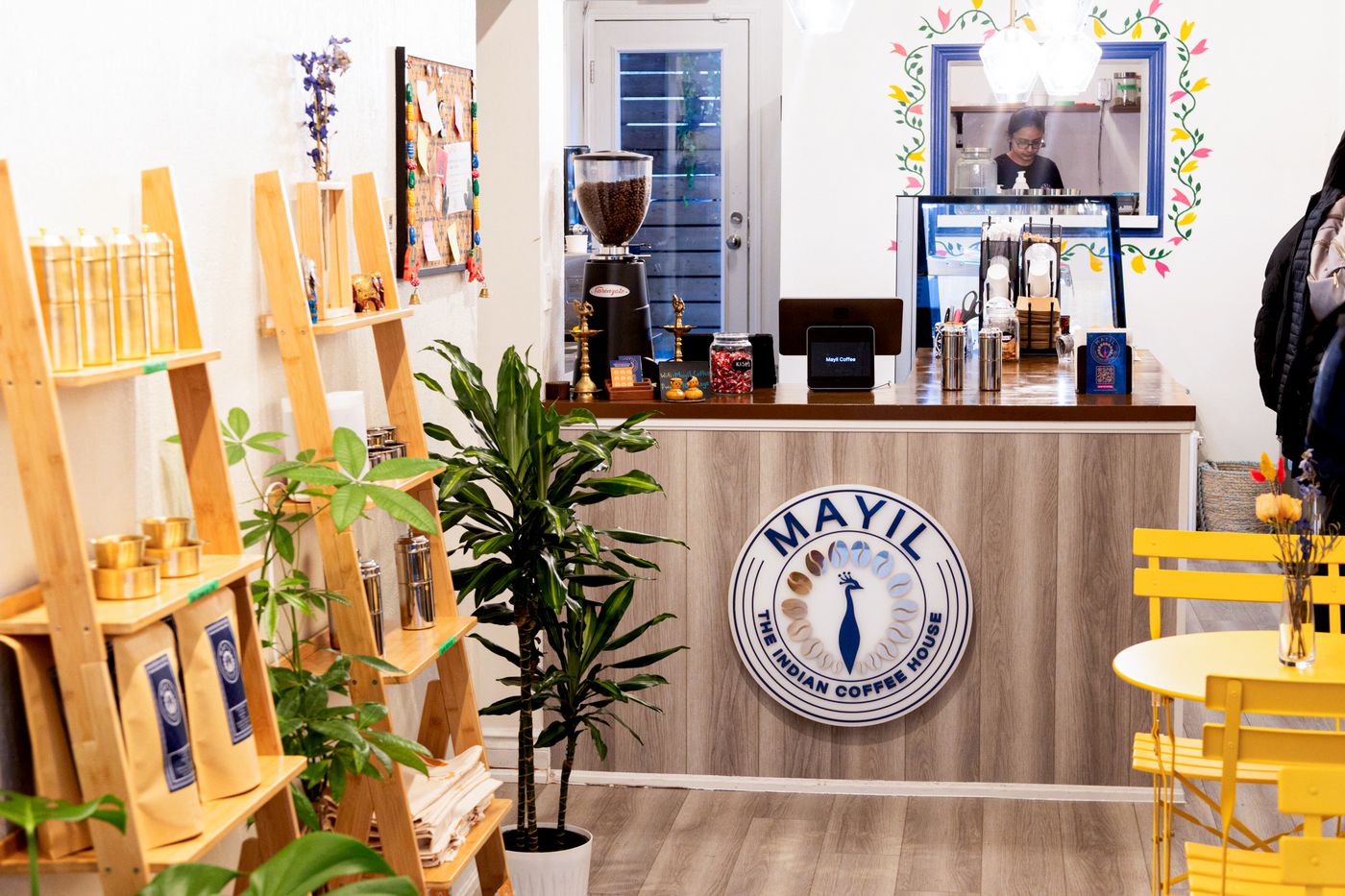 Rohatgi grew up in Delhi, India, but studied in the south of the country, in Tamil Nadu. “That’s where I learned about filter coffee and all the South Indian food,” she says.
Rohatgi grew up in Delhi, India, but studied in the south of the country, in Tamil Nadu. “That’s where I learned about filter coffee and all the South Indian food,” she says.
“In the north we drink chai, in the south we drink coffee. A lot of people don’t know that we grow coffee in India and coffee is a big part of South Indian culture.”
The act of brewing
She mentioned that the simple act of making filter coffee is a symbol of hospitality and a connection to tradition.
For Rohatgi, this cultural immersion not only led to the country's bold flavors, but looking back, it also triggers a deep nostalgia, a longing for authenticity and warmth and security.
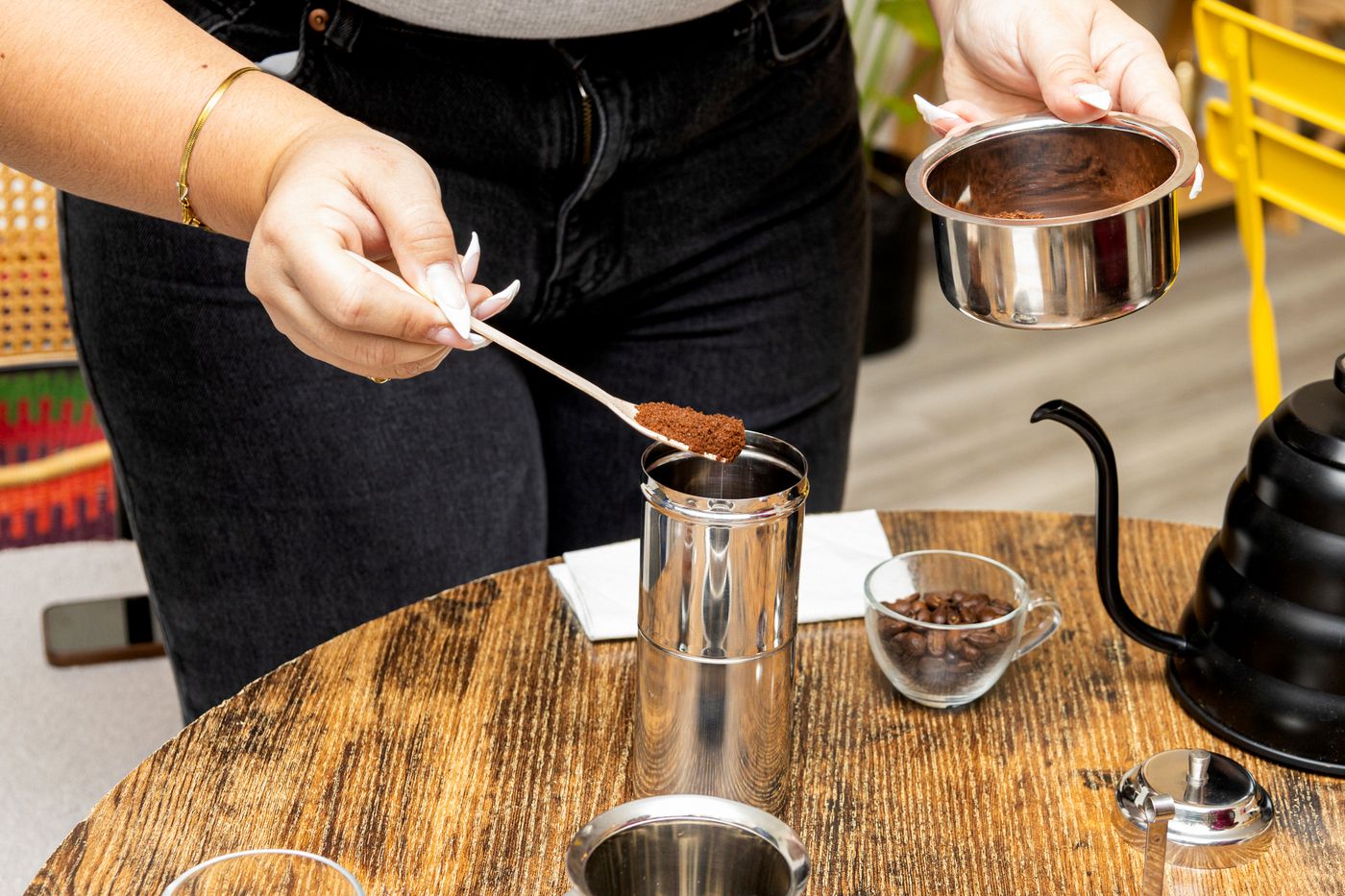 “By creating a home for others, it is like a home for us. I think that was my big inspiration, to create a space where people can come, relax and feel a bit of nostalgia,” Rohatgi added, pointing to the decor that adorns his walls.
“By creating a home for others, it is like a home for us. I think that was my big inspiration, to create a space where people can come, relax and feel a bit of nostalgia,” Rohatgi added, pointing to the decor that adorns his walls.
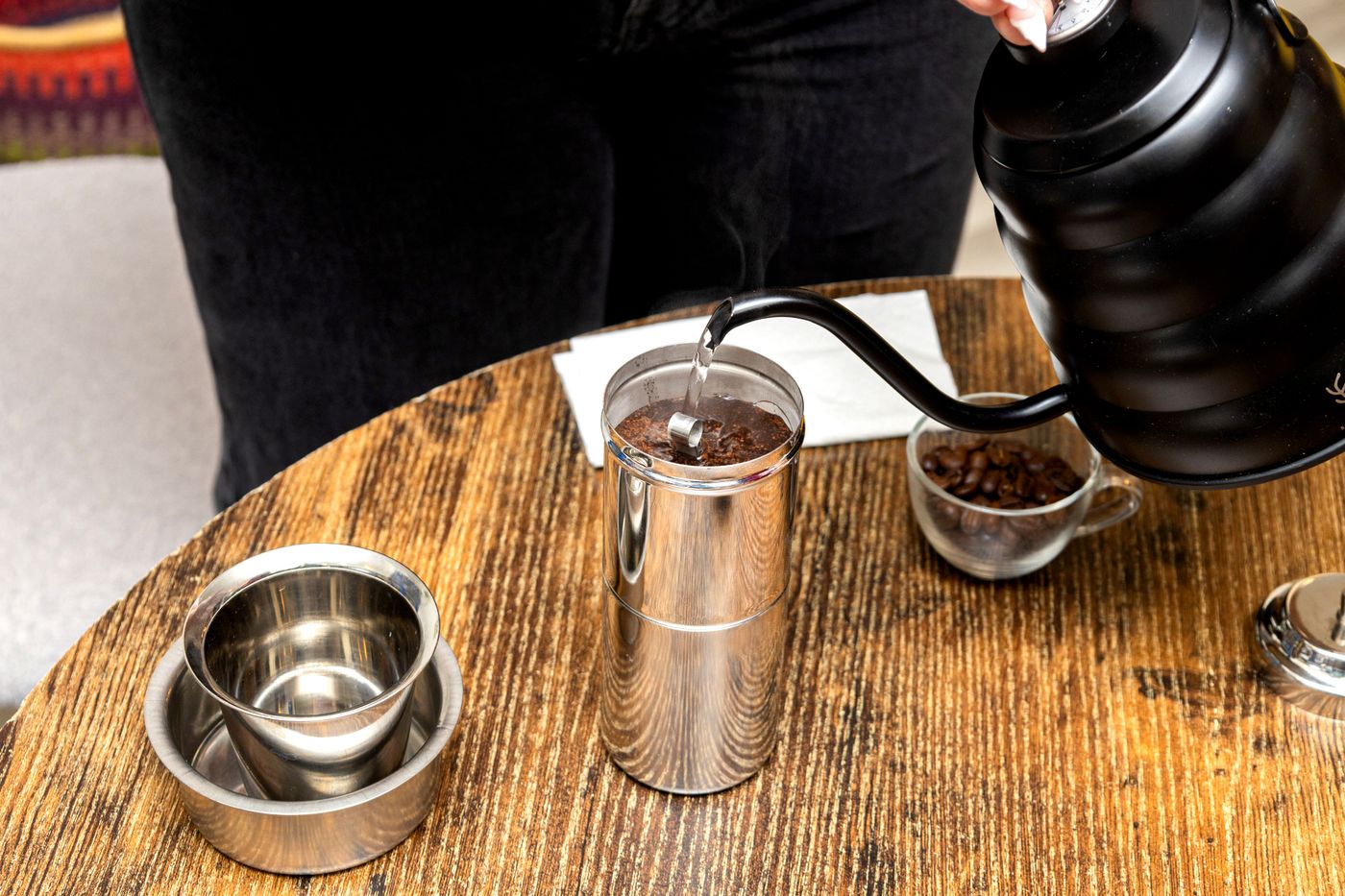 Every piece of art in the cafe is hand-painted and the fabrics come directly from India. “It reminds me of my mother and grandmother’s saris and their dresses,” Rohatgi shared. “Little things that remind you of the feeling of home. So we want this to be a space where you sit and feel like your loved ones are there.”
Every piece of art in the cafe is hand-painted and the fabrics come directly from India. “It reminds me of my mother and grandmother’s saris and their dresses,” Rohatgi shared. “Little things that remind you of the feeling of home. So we want this to be a space where you sit and feel like your loved ones are there.”
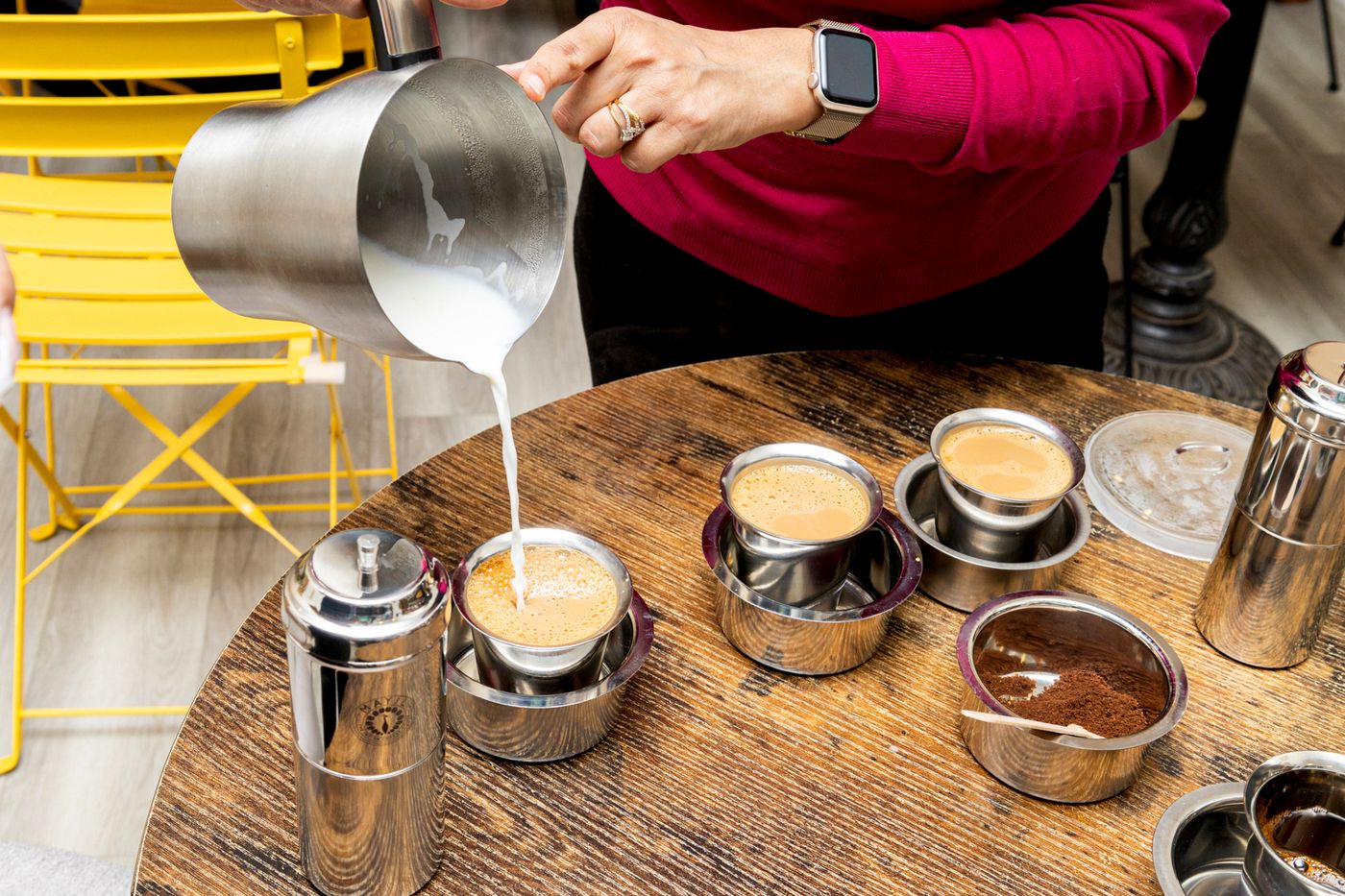 The meticulous attention to detail in the cafe's décor reflects the couple's lifelong commitment to creating spaces that feel like home, a feeling born of their enduring relationship and desire to unite people.
The meticulous attention to detail in the cafe's décor reflects the couple's lifelong commitment to creating spaces that feel like home, a feeling born of their enduring relationship and desire to unite people.
More than coffee, a touch of home
“We've been together for so long, we've been dating since we were kids. We grew up together and always invited people to our home and we want to build that community,” Kasyap said. “So this is an attempt to build that.”
In addition to the additional accents within the space and the rest that has yet to come from India, the duo plans to host experiences that further articulate this sense of belonging – one of which is a teaching workshop on making traditional filter coffee.
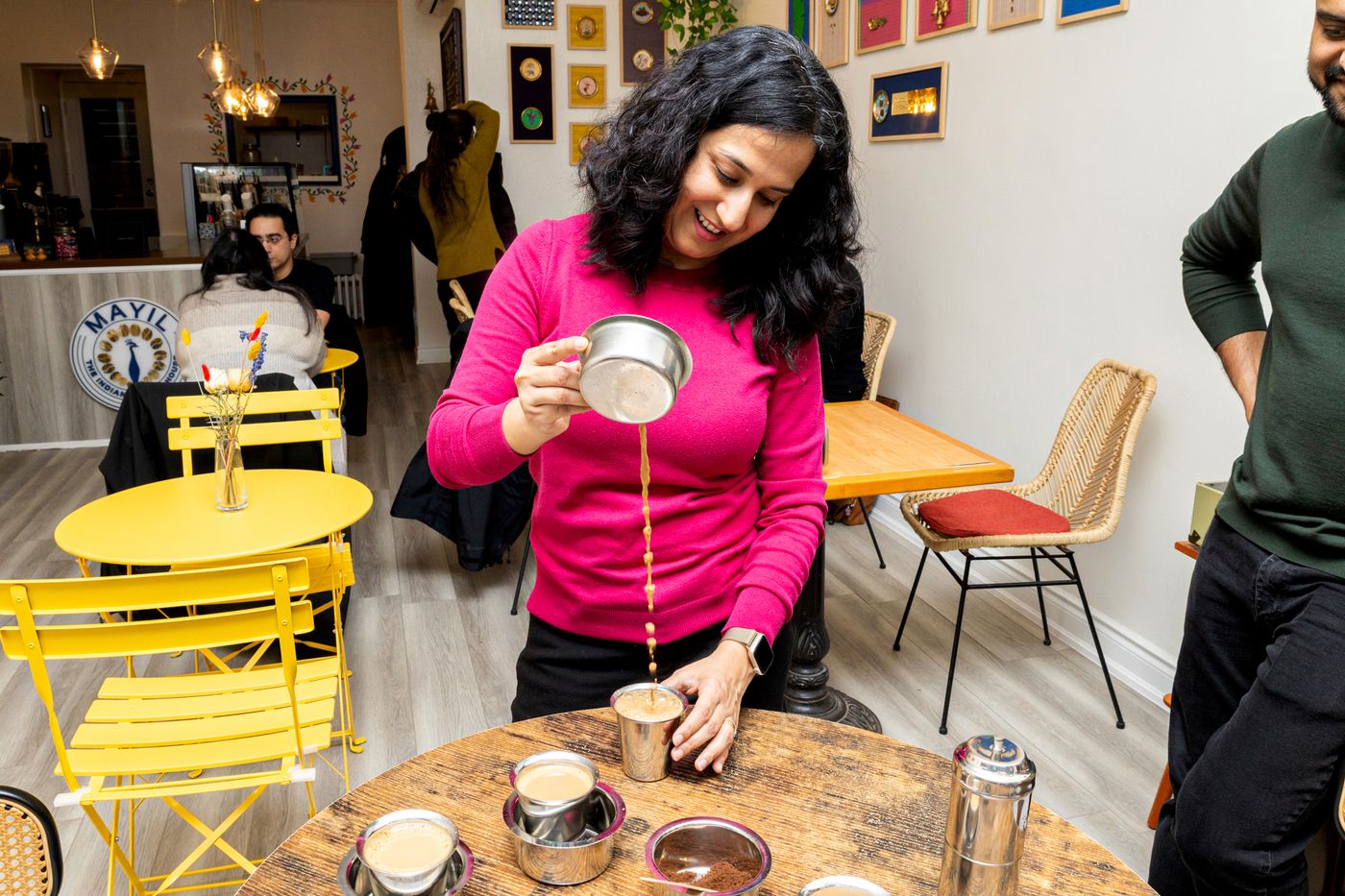 “I like to learn a lot and have researched as much as possible about filter coffee,” says Rohatgi. “I want to build a community of filter coffee lovers, then collaborate with them and tell them all about this coffee.” When asked when they plan to host these educational events, Rohatgi said they hope to host monthly or weekly “meetups.”
“I like to learn a lot and have researched as much as possible about filter coffee,” says Rohatgi. “I want to build a community of filter coffee lovers, then collaborate with them and tell them all about this coffee.” When asked when they plan to host these educational events, Rohatgi said they hope to host monthly or weekly “meetups.”
Brewing you can touch
When I tested the experience before it was released to the public, I got to make a traditional South Indian filter coffee myself. Rohatgi picked up a stainless steel filter, a few cups, spoons, boiling water and a traditional saucer called a dabarah.
The soil had an earthy, almost woody smell with a hint of chicory. Similar to an espresso grinder, I put three spoonfuls of coffee into the stainless steel filter. The stronger, the better.
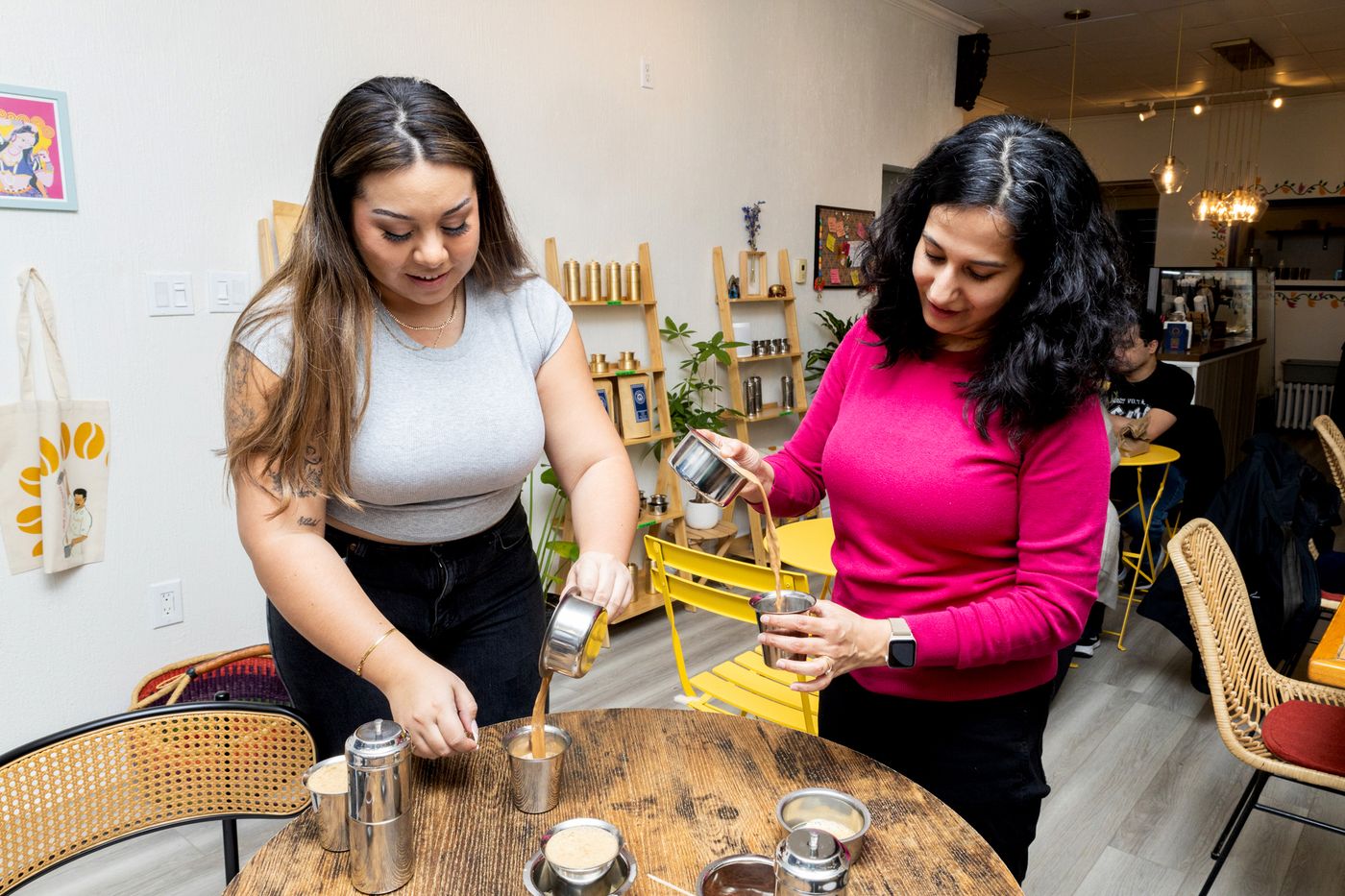 This is where I learned that I need to smooth out any bumps to make sure the floor is ready for filtration. Then boiling water was poured in until just before the edge. Although this coffee is usually brewed in the evening or a few hours before drinking, for workshop convenience the coffee blend is already prepared for blending.
This is where I learned that I need to smooth out any bumps to make sure the floor is ready for filtration. Then boiling water was poured in until just before the edge. Although this coffee is usually brewed in the evening or a few hours before drinking, for workshop convenience the coffee blend is already prepared for blending.
The next part consists of hot milk sweetened with sugar and a lot of back and forth – i.e. pouring. A foamy surface then forms from the bowl into the cup and vice versa. Once ready, it is served in a metal cup in the saucer.
I'm no stranger to a deliciously brewed cup of coffee – it needs to be sweet, but not too sweet and strong.
Growing up in a Latino household, you could say that coffee is an important part of my life. Whenever friends came over, my mother would turn on the kettle and boil the water before they even walked through the door. A cup of coffee wasn't an option; it was important.
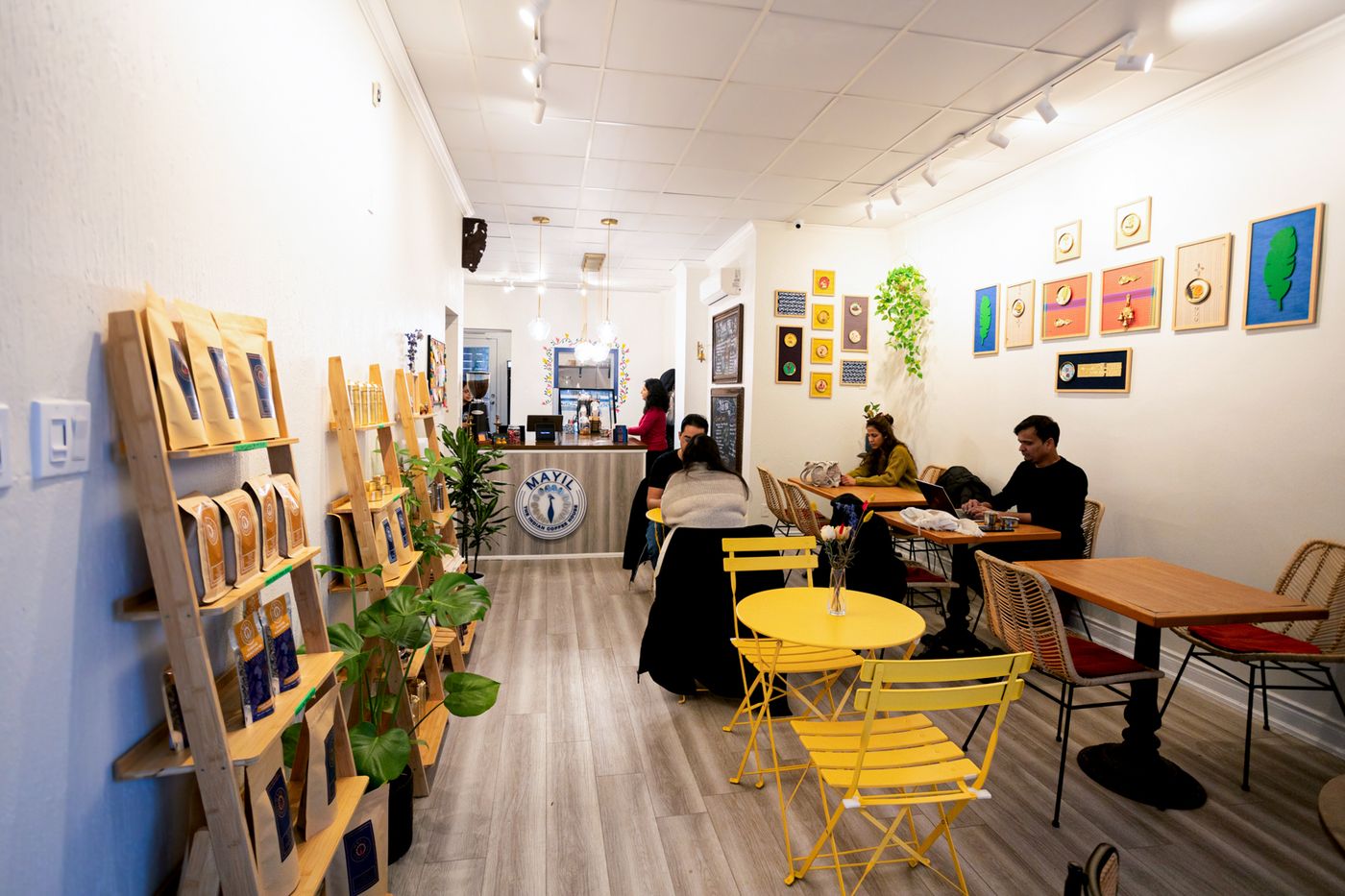 That's why I understand the deep cultural significance that coffee has for families. The preparation brings back precious memories and its taste conveys a feeling of warmth and nostalgia.
That's why I understand the deep cultural significance that coffee has for families. The preparation brings back precious memories and its taste conveys a feeling of warmth and nostalgia.
I felt all of this after my first sip here – familiarity. Despite our different backgrounds, tastes and traditions, this very cup made me feel nostalgic, it tasted like home.
It is this feeling of connection and belonging that Mayil Coffee strives to create with every cup served.
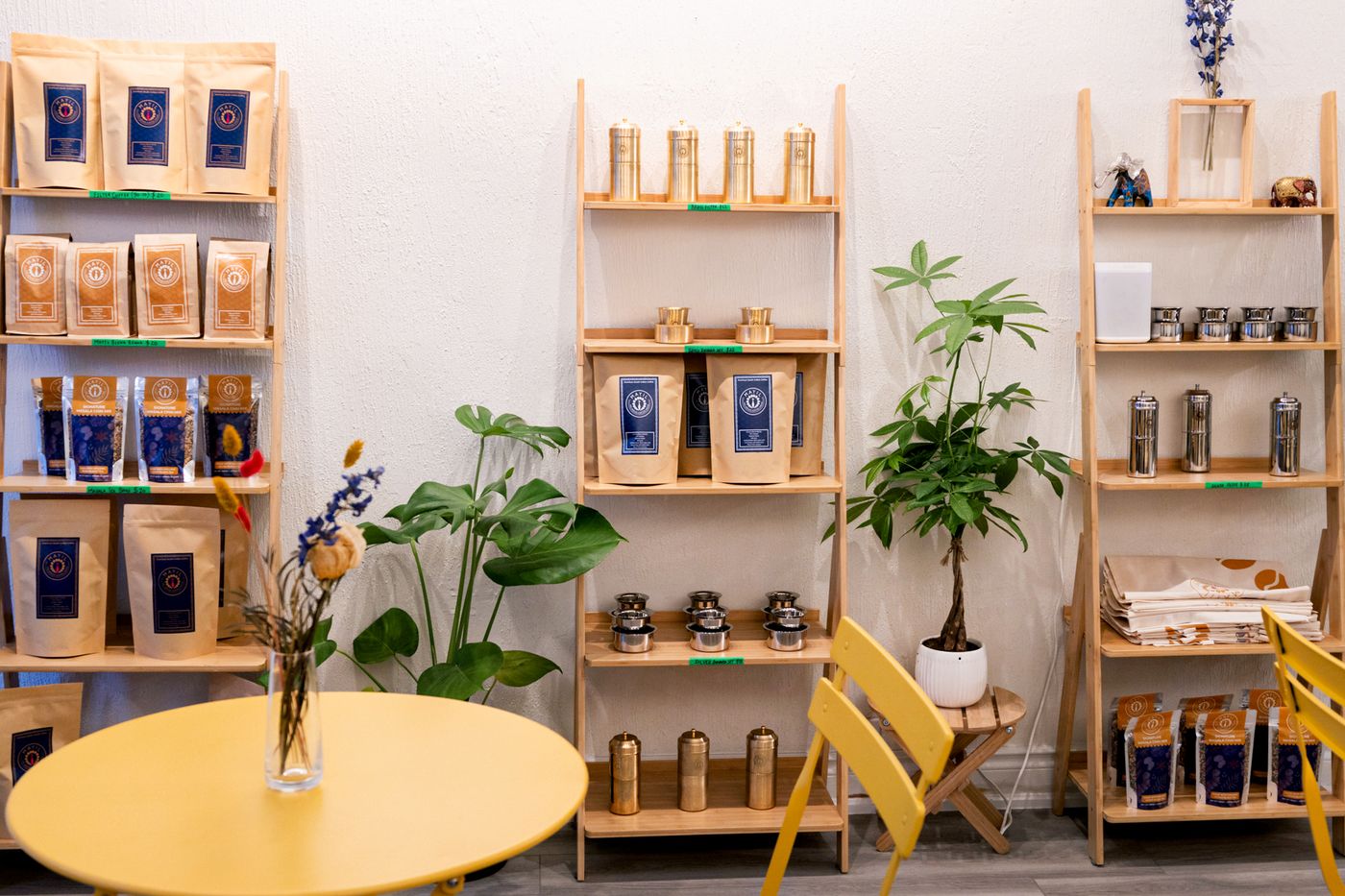 Although the coffee workshops are new and a work in progress, Rohatgi plans to offer them in the new year, free of charge, to create awareness about culture (and coffee). They have set January 11, 2025 as the date for their first upcoming event. Further details will be released on Instagram at a later date.
Although the coffee workshops are new and a work in progress, Rohatgi plans to offer them in the new year, free of charge, to create awareness about culture (and coffee). They have set January 11, 2025 as the date for their first upcoming event. Further details will be released on Instagram at a later date.
And if you want to give it a try for now, the drip coffee is available for $4.75.
“We love our jobs, but this is also something we love and something we've all always wanted to build,” Kashyap shared. “We talked about building a community and inviting people in, and that’s our passion.”
In Toronto, coffee often feels like a part of mindless everyday life, but this South Indian cafe reminds us that every cup can be an experience, a memory and part of history.
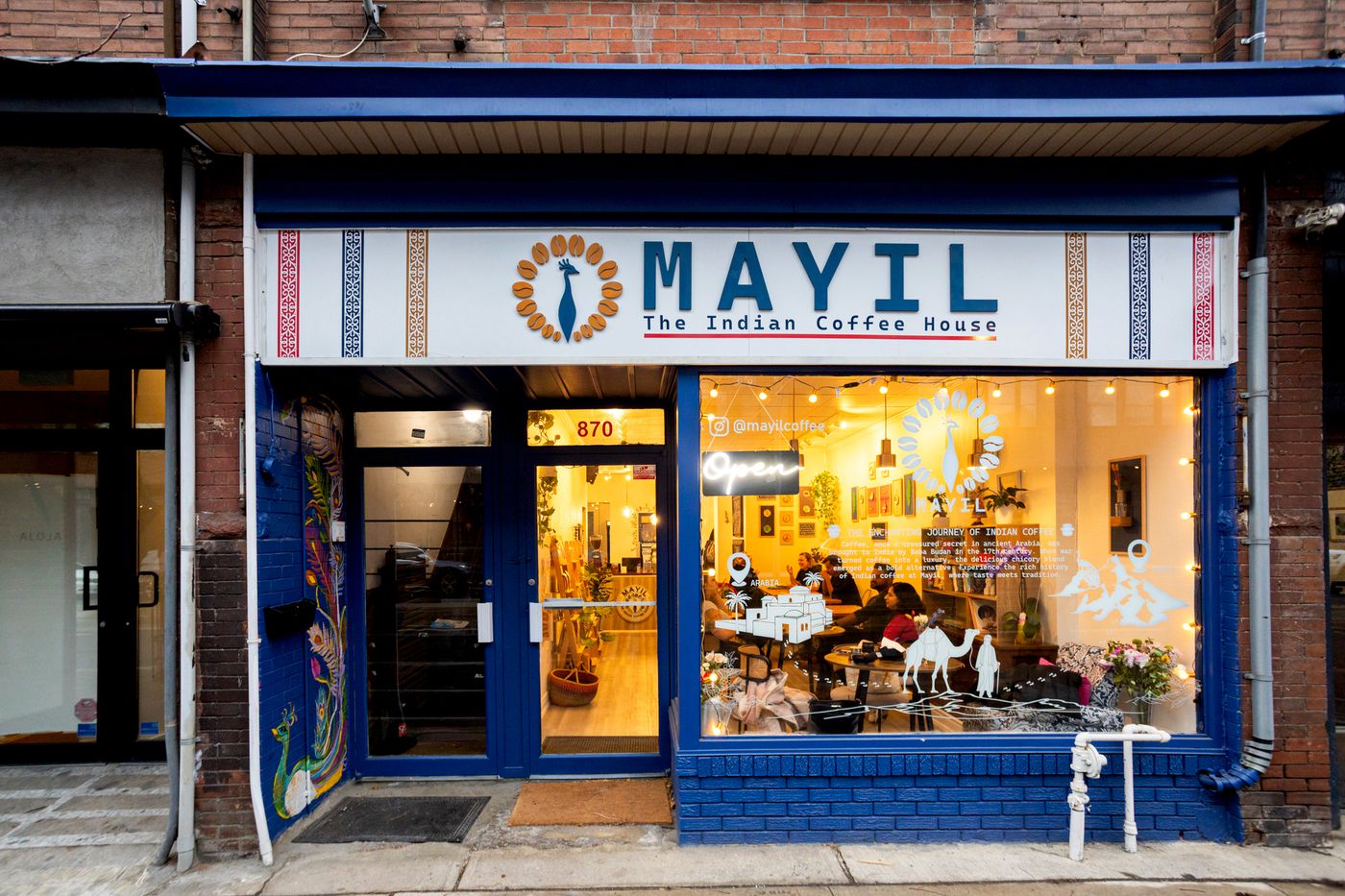 Mayil Coffee is located at 870 College St. The cafe is open daily from 9 a.m. to 6 p.m. and Saturdays until 7 p.m
Mayil Coffee is located at 870 College St. The cafe is open daily from 9 a.m. to 6 p.m. and Saturdays until 7 p.m



















